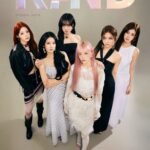 |
I’ve found an interesting reason behind Koreans’ obsession with making English names, and I would like to share what I’ve learned today. . .
. * Quotation from the thesis 개인의 이름은 조상신의 비호를 받는 신성한 대상으로 노출되거나 함부로 불려서는 안 되는 합의된 인식이 존재했다. 때문에 작명의례도 신중했고, 일단 이름이 지어지면 조상신께 고하고 그 후에는 족보에 이름을 기재한 후 이름의 당사자는 자(字/ 어른이 되면 부모나 스승이 지어주는 ‘사회적 이름. 윗사람이나 친구들이 부를 때 사용되었다.)나 호(號 / 현대의 별명, 닉네임. 자신이 만들기도 하고, 다른 사람들이 만들어줄 수도 있었다.)로 이름을 대신했다. 이름과몸을 동일시했기에 이름에 부정탈 것을 두려워했기 때문이다. 이러한 명체불이(名體不離)의 생각은 본명을 철저히 감추고 비장(秘藏)하는 문화가 발전했다. There was a shared belief that an individual’s name was a sacred entity protected by ancestral spirits and should not be exposed or carelessly called. For this reason, naming ceremonies were conducted with great care. Once a name was chosen, it was reported to the ancestral spirits and recorded in the family register. Afterward, the individual would use a 자 (字 / a name given by parents or teachers upon reaching adulthood, and it was used by elders or friends when addressing the individual.) or a 호 (號 / a nickname. It could be created by the individual themselves or given by others.) instead of their given name. This practice stemmed from the belief that one’s name was inseparable from one’s body, and people feared that their name could bring misfortune or harm. This concept of 명체불이 (名體不離, the inseparability of name and body) led to the development of a culture where given names were carefully concealed and kept secret. . 2) Unique name culture . 3) Modern problems require modern solutions . Due to these traditional issues above-mentioned, Koreans still feel obliged to take responsibility once their names are disclosed, even in relationships with people outside their family. However, in modern society, the range of people we should meet and interact with is beyond our control, and their reliability often remains uncertain. Also, they don’t want to stay emotionally and socially connected to everyone; instead, they prefer to carefully choose whom they want to build connections with. As a result, they adopt a strategy their ancestors used in the past: creating a 호 (nickname) for themselves. As their ancestors chose the most dominant language of their time for their nicknames, their descendants choose the dominant language in modern society: English. . 4) My observation & Thought . I have also started to think that it is why I find it difficult to adapt to Korean society, where everyone feels the pressure of their names, while I don’t feel anything about it. They probably view me as a strange person. Now I understand their pressure. submitted by /u/KoreanGrammarDoctor |
Related Posts
Latest News from Korea
- South Korea’s Lee completes cabinet lineup with IT executive, lawmakerSouth Korean President Lee Jae Myung appoints Rep. Kim Yun-duk of the ruling Democratic Party (left) as land minister and Chae Hwi-young, the chief executive officer (CEO) of the travel platform Nol Universe, as culture minister (Courtesy of the presidential office) South Korean President Lee Jae Myung has tapped an information technology executive as culture minister and a ruling party… Read more: South Korea’s Lee completes cabinet lineup with IT executive, lawmaker
- Hyundai Glovis charts new waters with world’s first AI-driven self-sailing car carrier fleetGlovis Century, a Hyundai Glovis pure car and truck carriern (PCTC) South Korea’s Hyundai Glovis Co. is poised to become the world’s first shipping company to deploy artificial intelligence-based autonomous navigation systems on its fleet of car carriers in a bold move that could reshape the future of maritime logistics. The logistics unit of Hyundai Motor Group has signed a… Read more: Hyundai Glovis charts new waters with world’s first AI-driven self-sailing car carrier fleet
- Korea’s game studios rebrand as AI tech firms, moving into fashion, robotics, mediaKorean game studios are retooling as AI tech firms What was once a world of elves, dragons and power-ups is now giving rise to one of South Korea’s most unexpected tech revolutions, with game studios taking their place alongside Big Tech in the race for AI dominance. The country’s gaming heavyweights are increasingly shedding their image as pure entertainment companies… Read more: Korea’s game studios rebrand as AI tech firms, moving into fashion, robotics, media
- K-pop queens return: Blackpink, Twice power up YG, JYPTwice (left) and Blackpink (right) (Courtesy of JYP amd YG) Blackpink and Twice, two of South Korea’s most prominent K-pop female acts, made high-profile returns on Friday with new releases, heightening expectations for a rebound at their respective labels, YG Entertainment Inc. and JYP Entertainment Corp. At 1 pm Seoul time (4 am GMT), Blackpink fully unveiled its single,… Read more: K-pop queens return: Blackpink, Twice power up YG, JYP
- Samsung to launch AI health coach beta in US by end of 2025Galaxy Ring and Galaxy Watch series (Courtesy of Samsung Electronics) NEW YORK – Samsung Electronics Co. will roll out a beta version of AI-powered health coach within the Samsung Health application in the US by the end of this year. The AI health coach in the form of a chatbot will analyze users’ heath data and assist them in implementing… Read more: Samsung to launch AI health coach beta in US by end of 2025
Latest Entertainment from Korea
- K-POP Star UKISS Hoon Announces 2025 Special Live Event in Japan: Dates, Venues, and Ticket DetailsPhoto Credits: Tango Music UKISS Hoon is set to make waves in Japan this summer with his highly anticipated 2025 Special Live Event, promising an unforgettable experience for K-POP fans. The event, which will take place across two major cities—Tokyo and Osaka—marks a significant return for Hoon, a beloved member of the iconic group UKISS, as he continues to connect… Read more: K-POP Star UKISS Hoon Announces 2025 Special Live Event in Japan: Dates, Venues, and Ticket Details
- STAYC – K!ND Magazine China (August 2025 Issue Cover Preview)Photo Credits: High Up Entertainment Mercury Tokyo (Japan) K!nd Magazine China STAYC, the six-member K-pop sensation, has been revealed as the cover group for K!ND Magazine China’s August 2025 issue, a move that has electrified fans across Asia and beyond. The preview images circulating online showcase the group’s dynamic charm and evolving style, underscoring why STAYC continues to capture the attention of… Read more: STAYC – K!ND Magazine China (August 2025 Issue Cover Preview)
- ALL(H)OURS’ “Graffiti” Music Video Ignites K-Pop Fandom with Urban Artistry and Global AppealVideo Credits: EDEN Entertainment Hero Image: NME A surge of excitement swept through the K-pop community when ALL(H)OURS, the dynamic multinational collective, dropped their official music video for “Graffiti.” Released on January 17, the video instantly stood out for its bold visual storytelling and genre-blending sound, reaffirming the group’s reputation as one of the most innovative acts on the global… Read more: ALL(H)OURS’ “Graffiti” Music Video Ignites K-Pop Fandom with Urban Artistry and Global Appeal
- HYBE Latin America Launches Santos Bravos, Pioneering Latin Boy Group with K-Pop Training ExcellencePhoto HYBE HYBE, the South Korean entertainment giant renowned for shaping global K-pop sensations like BTS, SEVENTEEN, and ENHYPEN, has taken a significant step into the Latin American music scene with its ambitious project, Santos Bravos. Officially launched on July 10, 2025, Santos Bravos represents HYBE Latin America’s first major reality-based initiative to form a Latin boy group, blending the… Read more: HYBE Latin America Launches Santos Bravos, Pioneering Latin Boy Group with K-Pop Training Excellence
- QWER Unveils a Fresh Era for High Cut Magazine and Hyundai Duty Free, Igniting K-pop EnthusiasmPhoto Credits: High Cut Magazine. Tamago Production QWER, the rising K-pop band, has taken a significant leap in their career by gracing the digital cover and pictorial of High Cut Magazine’s July 2025 issue in collaboration with Hyundai Duty Free. This partnership marks a pivotal moment not only for the group but also for the magazine, which has long been… Read more: QWER Unveils a Fresh Era for High Cut Magazine and Hyundai Duty Free, Igniting K-pop Enthusiasm
Learn People & History of Korea
- The Evolution of Busan: A Historical Journey Through South Korea’s Second Largest Metropolitan CityAncient Beginnings: The Founding of Busan Busan, known as the second largest metropolitan city in South Korea, has a rich history that dates back to ancient times. The earliest recorded existence of Busan can be traced to the Goryeo Dynasty, where it was referenced as a vital coastal settlement. Its strategic location along the southeastern coast of the Korean Peninsula… Read more: The Evolution of Busan: A Historical Journey Through South Korea’s Second Largest Metropolitan City
- The Evolution of Pyongyang: A Journey Through History, Economy, and Political DynamicsIntroduction to Pyongyang Pyongyang, the capital city of North Korea, serves as a prominent symbol of the nation’s history and culture. Geographically located on the banks of the Taedong River, in the southwest part of the country, Pyongyang is situated within a strategic area that has historically facilitated trade and cultural exchange. The city’s origins can be traced back to… Read more: The Evolution of Pyongyang: A Journey Through History, Economy, and Political Dynamics
- The Evolution of Seoul: From Ancient Korea to Modern Metropolis and BeyondAncient Beginnings: The Founding of Seoul The city of Seoul, known today as the vibrant capital of South Korea, has ancient roots that trace back to the Three Kingdoms period of Korea, specifically the kingdoms of Baekje and Silla. Evidence suggests that Seoul was originally established as a settlement given its strategic geographical advantages. Nestled within the Han River basin,… Read more: The Evolution of Seoul: From Ancient Korea to Modern Metropolis and Beyond
- Exploring Korean Traditional Games in Squid Game: From Season 2 to Upcoming Season 3Introduction to Korean Traditional Games Korean traditional games have long been an integral part of the country’s cultural landscape, offering more than mere entertainment. These games, which range from simple children’s pastimes to complex community activities, hold significant cultural significance and often serve as a means of preserving history and promoting social interaction. Rooted in centuries of tradition, these games… Read more: Exploring Korean Traditional Games in Squid Game: From Season 2 to Upcoming Season 3
- Unveiling the Past and Present of Saju: The Art of Korean Fortune TellingIntroduction to Saju Saju, a traditional Korean fortune-telling practice, is an intricate art that seeks to interpret an individual’s fate based on their birth date and time. The term “Saju” translates to “four pillars” in English, referring to the four critical components derived from these time markers: year, month, day, and hour. This method holds significant cultural value within South… Read more: Unveiling the Past and Present of Saju: The Art of Korean Fortune Telling














